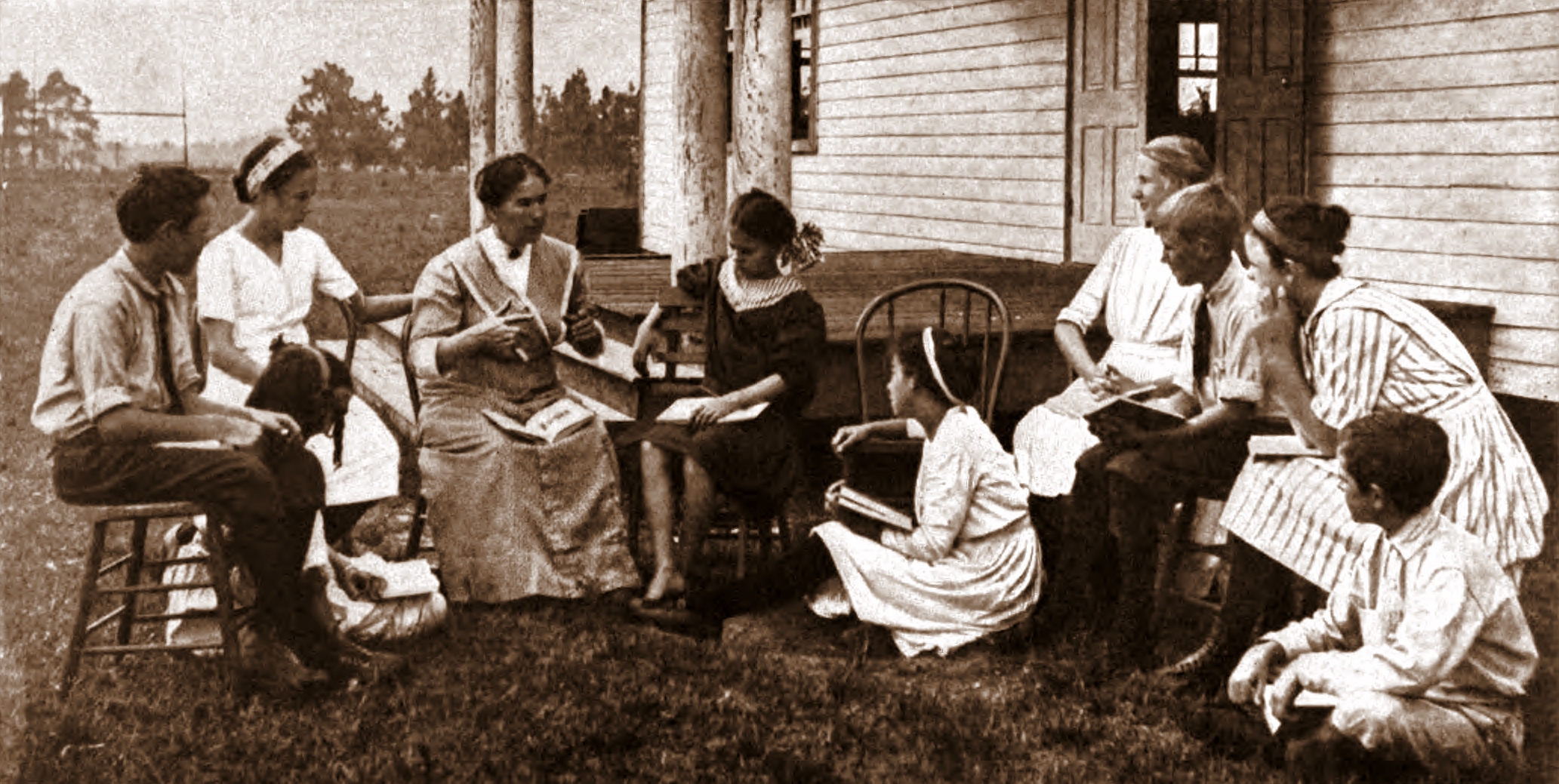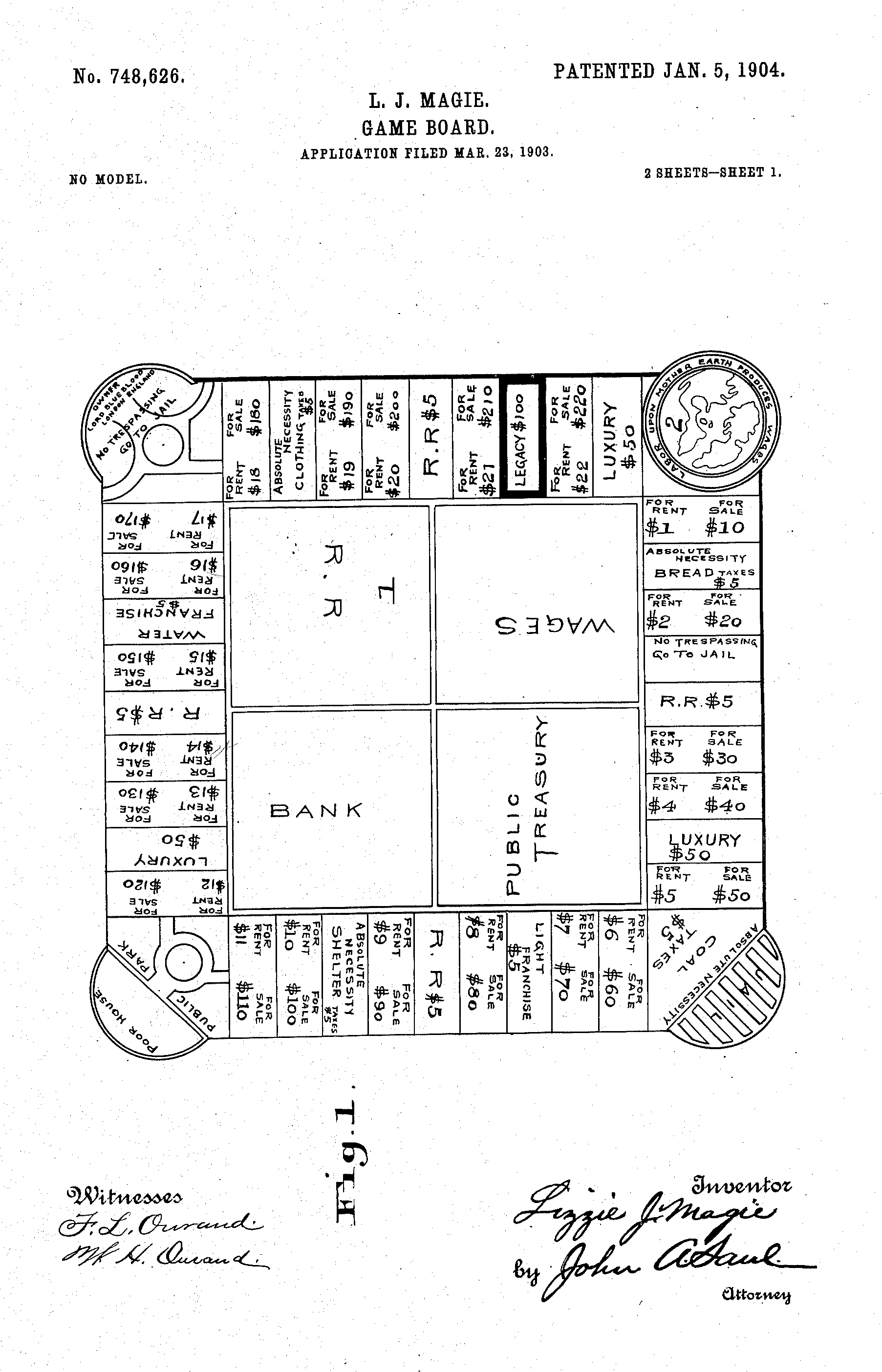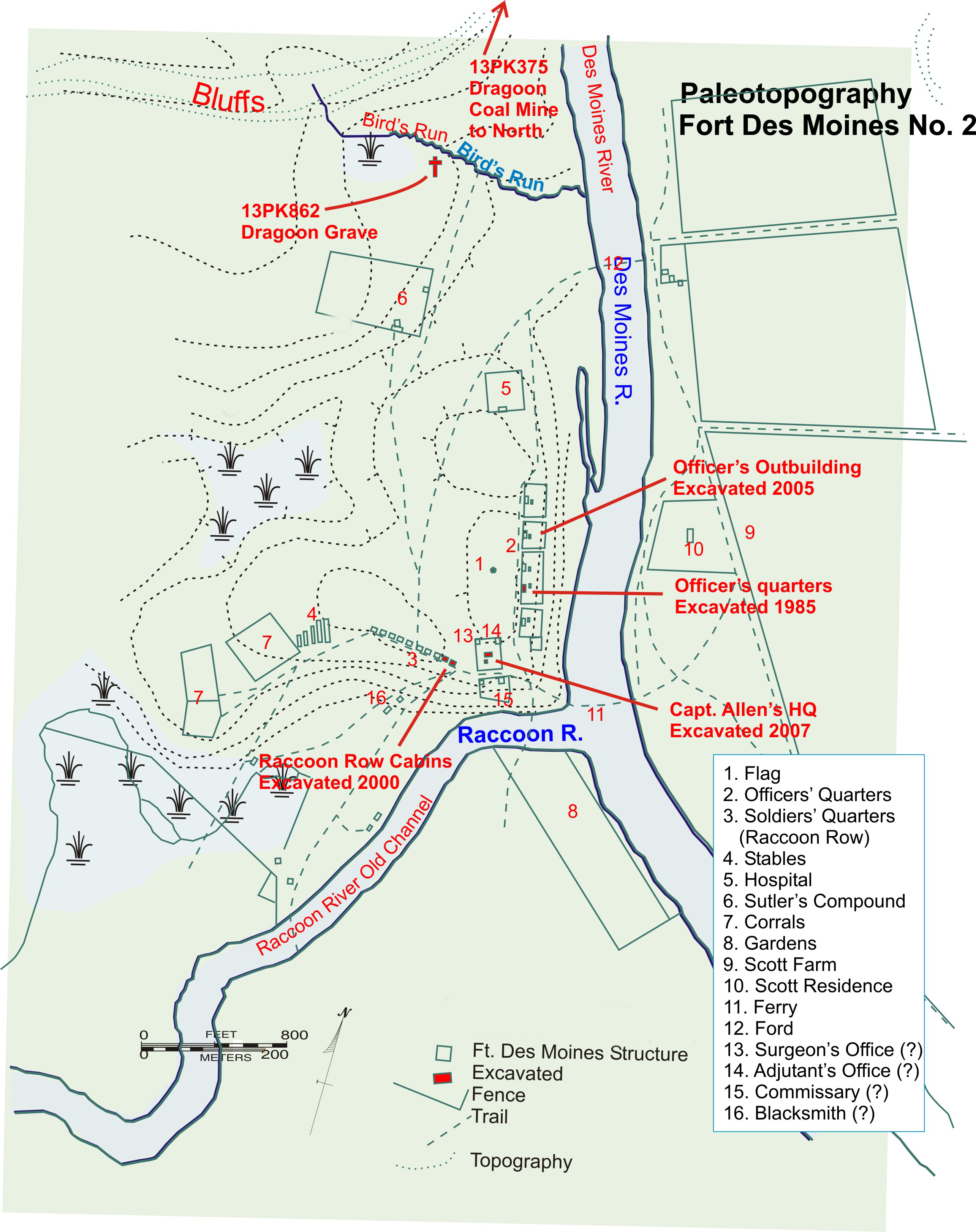|
Fairhope, Alabama
Fairhope is a city in Baldwin County, Alabama, United States, located on the eastern shoreline of Mobile Bay. The population was 22,477 at the 2020 census. Fairhope is a principal city of the Daphne-Fairhope-Foley metropolitan area, which includes all of Baldwin County. History Fairhope was founded on November 15, 1894, on the site of the former Alabama City as a Georgist "Single-Tax" colony by the Fairhope Industrial Association, a group of 28 followers of economist Henry George who had incorporated earlier that year in Des Moines, Iowa. Their corporate constitution explained their purpose in founding a new colony: In forming their demonstration project, they pooled their funds to purchase land at "Stapleton's pasture" on the eastern shore of Mobile Bay and then divided it into a number of long-term leaseholds. The corporation paid all governmental taxes from rents paid by the lessees, thus simulating a single-tax. The purpose of the single-tax colony was to eliminate di ... [...More Info...] [...Related Items...] OR: [Wikipedia] [Google] [Baidu] |
City
A city is a human settlement of a substantial size. The term "city" has different meanings around the world and in some places the settlement can be very small. Even where the term is limited to larger settlements, there is no universally agreed definition of the lower boundary for their size. In a narrower sense, a city can be defined as a permanent and Urban density, densely populated place with administratively defined boundaries whose members work primarily on non-agricultural tasks. Cities generally have extensive systems for housing, transportation, sanitation, Public utilities, utilities, land use, Manufacturing, production of goods, and communication. Their density facilitates interaction between people, government organisations, government organizations, and businesses, sometimes benefiting different parties in the process, such as improving the efficiency of goods and service distribution. Historically, city dwellers have been a small proportion of humanity overall, bu ... [...More Info...] [...Related Items...] OR: [Wikipedia] [Google] [Baidu] |
United States Census Bureau
The United States Census Bureau, officially the Bureau of the Census, is a principal agency of the Federal statistical system, U.S. federal statistical system, responsible for producing data about the American people and American economy, economy. The U.S. Census Bureau is part of the United States Department of Commerce, U.S. Department of Commerce and its Director of the United States Census Bureau, director is appointed by the president of the United States. Currently, Ron S. Jarmin is the acting director of the U.S. Census Bureau. The Census Bureau's primary mission is conducting the United States census, U.S. census every ten years, which allocates the seats of the United States House of Representatives, U.S. House of Representatives to the U.S. state, states based on their population. The bureau's various censuses and surveys help allocate over $675 billion in federal funds every year and it assists states, local communities, and businesses in making informed decisions. T ... [...More Info...] [...Related Items...] OR: [Wikipedia] [Google] [Baidu] |
Wharton Esherick
Wharton Esherick (July 15, 1887 – May 6, 1970) was an American artist and designer. An artistic polymath, he worked in a wide variety of art media including painting, printmaking, and sculpture. His design works range from architectural interiors to handheld, tactile objects like light pulls and chess pieces. Esherick is best known for his wood furniture, which synthesizes modernist sculptural form with functional craft. His influence was keenly felt within the genre of Postwar studio craft, where he has been called the “father of studio furniture” and the “dean of American craftsmen.” The sculptor and furniture designer Wendell Castle cited Esherick as a formative influence. Castle credited Esherick with demonstrating that "furniture could be a form of sculpture," the "inherent tree characteristics in the utilization of wood," and the "importance of the entire sculptural environment." The most comprehensive realization of Esherick's vision for a sculptural environ ... [...More Info...] [...Related Items...] OR: [Wikipedia] [Google] [Baidu] |
Clarence Darrow
Clarence Seward Darrow (; April 18, 1857 – March 13, 1938) was an American lawyer who became famous in the 19th century for high-profile representations of trade union causes, and in the 20th century for several criminal matters, including the Leopold and Loeb murder trial, the Scopes trial, Scopes "monkey" trial, and the Ossian Sweet defense. He was a leading member of the American Civil Liberties Union and a prominent advocate for Georgist economic reform. Darrow was also a well-known public speaker, debater, and writer. Darrow is considered by some legal analysts and lawyers to be the greatest lawyer of the 20th century. He was posthumously inducted into the Trial Lawyer Hall of Fame. Called a "sophisticated country lawyer",Linder, Douglas O. (1997)"Who Is Clarence Darrow?", ''The Clarence Darrow Home Page'' Darrow's wit and eloquence made him one of the most prominent attorneys and civil libertarians in the nation. Personal life Clarence Darrow was born in the small town of ... [...More Info...] [...Related Items...] OR: [Wikipedia] [Google] [Baidu] |
Sherwood Anderson
Sherwood Anderson (September 13, 1876 – March 8, 1941) was an American novelist and short story writer, known for subjective and self-revealing works. Self-educated, he rose to become a successful copywriter and business owner in Cleveland and Elyria, Ohio. In 1912, Anderson had a nervous breakdown that led him to abandon his business and family to become a writer. At the time, he moved to Chicago and was eventually married three additional times. His most enduring work is the short-story sequence '' Winesburg, Ohio,'' which launched his career. Throughout the 1920s, Anderson published several short story collections, novels, memoirs, books of essays, and a book of poetry. Though his books sold reasonably well, '' Dark Laughter'' (1925), a novel inspired by Anderson's time in New Orleans during the 1920s, was his only bestseller. Early life Sherwood Berton Anderson was born on September 13, 1876, at 142 S. Lafayette Street in Camden, Ohio, a farming town with a population of a ... [...More Info...] [...Related Items...] OR: [Wikipedia] [Google] [Baidu] |
Progressive Education
Progressive education, or educational progressivism, is a pedagogical movement that began in the late 19th century and has persisted in various forms to the present. In Europe, progressive education took the form of the New Education Movement. The term ''progressive'' was engaged to distinguish this education from the traditional curricula of the 19th century, which was rooted in classical preparation for the early-industrial university and strongly differentiated by social class. By contrast, progressive education finds its roots in modern, post-industrial experience. Most progressive education programs have these qualities in common: * Emphasis on learning by doing – hands-on projects, expeditionary learning, experiential learning * Integrated curriculum focused on thematic units * Strong emphasis on problem solving and critical thinking * Group work and development of social skills * Understanding and action as the goals of learning as opposed to rote knowledge * Collabora ... [...More Info...] [...Related Items...] OR: [Wikipedia] [Google] [Baidu] |
John Dewey
John Dewey (; October 20, 1859 – June 1, 1952) was an American philosopher, psychologist, and Education reform, educational reformer. He was one of the most prominent American scholars in the first half of the twentieth century. The overriding theme of Dewey's works was his profound belief in democracy, be it in politics, education, or communication and journalism. As Dewey himself stated in 1888, while still at the University of Michigan, "Democracy and the one, ultimate, ethical ideal of humanity are to my mind synonymous." Dewey considered two fundamental elements—schools and civil society—to be major topics needing attention and reconstruction to encourage experimental intelligence and plurality. He asserted that complete democracy was to be obtained not just by extending voting rights but also by ensuring that there exists a fully formed public opinion, accomplished by communication among citizens, experts, and politicians. Dewey was one of the primary figures associ ... [...More Info...] [...Related Items...] OR: [Wikipedia] [Google] [Baidu] |
Marietta Johnson
Marietta Pierce Johnson (Oct. 8, 1864Dec. 23,1938) was an American educational reformer and Georgist. Johnson was born in St. Paul, Minnesota, and moved with her family to Fairhope, Alabama, in 1902. In 1907, she founded a progressive school called the School of Organic Education (now the Marietta Johnson School of Organic Education). Johnson had been a teacher in the regular school system in Minnesota and had radical ideas on education reform. She felt that children should live natural lives, study the outdoors and not be forced to read at too young an age. In her "organic school", tests were not administered, homework was withheld until high school, and grades were unknown. She required hand crafts and folk dancing along with the traditional academic curriculum. Her school was a magnet to young teachers and to artists, and was instrumental in building the reputation of Fairhope as an artists' colony. Encouraged and funded by friends in the small experimental community of ... [...More Info...] [...Related Items...] OR: [Wikipedia] [Google] [Baidu] |
Monopoly (game)
''Monopoly'' is a multiplayer economics-themed board game. To play the game, players roll two dice (or 1 extra special red die) to move around the game board. The objective is to buy and trade properties and develop them. The development and objective is certified with purchasing and trading houses and hotels. Players collect rent from their opponents, and aim to drive them into bankruptcy. Money can also be gained or lost through ''Chance'' and ''Community Chest'' cards. Tax spaces charge a tax as a percentage of a player's equity or a flat fee. Players will receive a salary every time they pass "Go". All players can end up in jail. While in jail, players cannot move until they have met one of three conditions. House rules, hundreds of different editions, many spin-offs, and related media exist. ''Monopoly'' has become a part of international popular culture, having been licensed locally in more than 113 countries and printed in more than 46 languages. , it was estimated ... [...More Info...] [...Related Items...] OR: [Wikipedia] [Google] [Baidu] |
The Landlord's Game
''The Landlord's Game'' is a board game patented in 1904 by Elizabeth Magie as . A realty and taxation game intended to educate users about Georgism, it is the inspiration for the 1935 board game ''Monopoly (game), Monopoly''. History file:BoardGamePatentMagie.png, 150px, left, The first patent drawing for Lizzie Magie's board game, dated January 5, 1904 In 1902 to 1903, Magie designed the game and playtested it in Arden, Delaware. The game was created to be a "practical demonstration of the present system of land grabbing with all its usual outcomes and consequences". She based the game on the economic principles of Georgism, a system proposed by Henry George, with the object of demonstrating how rents enrich property owners and impoverish tenants. She knew that some people could find it hard to understand why this happened and what might be done about it, and she thought that if Georgist ideas were put into the concrete form of a game, they might be easier to demonstrate. Magi ... [...More Info...] [...Related Items...] OR: [Wikipedia] [Google] [Baidu] |
Des Moines, Iowa
Des Moines is the List of capitals in the United States, capital and List of cities in Iowa, most populous city in the U.S. state of Iowa. It is the county seat of Polk County, Iowa, Polk County with parts extending into Warren County, Iowa, Warren County. It is named after the Des Moines River, likely derived from the French "Rivière des Moines" meaning "River of the Monks." The city was incorporated in 1851 as Fort Des Moines and shortened to "Des Moines" in 1857. Its population was 214,133 at the 2020 United States census, 2020 census. The Des Moines metropolitan area, covering six counties, is the Metropolitan statistical area, 81st largest metropolitan area in the U.S. with about 750,000 residents, and is the largest metropolitan area entirely in Iowa. Des Moines is a major center of the United States insurance industry and has a sizable financial services and publishing business base. The city is the headquarters for the Principal Financial Group and Wellmark Blue Cross B ... [...More Info...] [...Related Items...] OR: [Wikipedia] [Google] [Baidu] |
Henry George
Henry George (September 2, 1839 – October 29, 1897) was an American political economist, Social philosophy, social philosopher and journalist. His writing was immensely popular in 19th-century America and sparked several reform movements of the Progressive Era. He inspired the economic philosophy known as Georgism, the belief that people should own the value they produce themselves, but that the economic value of land (economics), land (including natural resources) should belong equally to all members of society. George famously argued that a single tax on land values would create a more productive and just society. His most famous work, ''Progress and Poverty'' (1879), sold millions of copies worldwide. The treatise investigates the paradox of increasing inequality and poverty amid economic and technological progress, the business cycle with its cyclic nature of industrialized economies, and the use of rent capture such as land value taxation and other anti-monopoly reforms ... [...More Info...] [...Related Items...] OR: [Wikipedia] [Google] [Baidu] |






